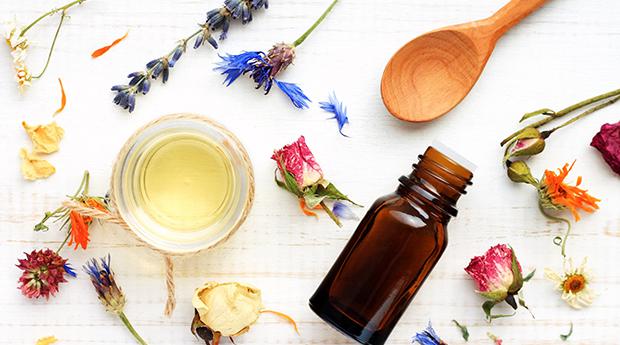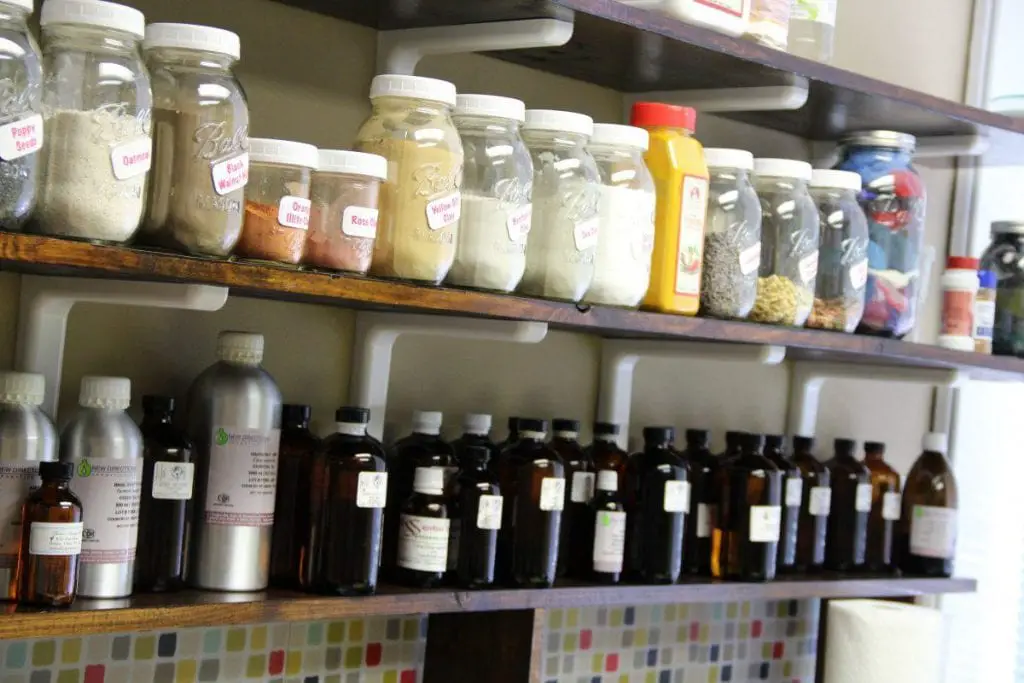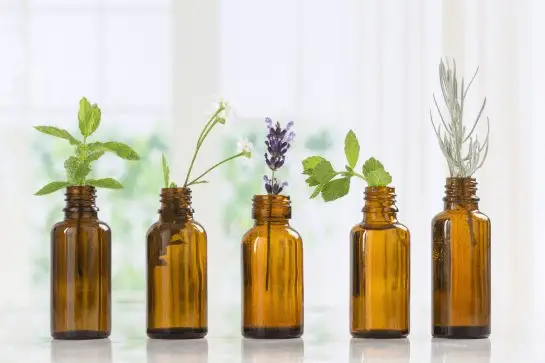
In this article, we will discuss the top 10 essential oils that perfectly combine with your all-natural handmade soaps or the soap making essential oils. So, if you are seeking soap-making essential oils, you will want to know which essential oils are excellent for holding aroma and being economical.
Essential Oils in Soap Making

Essential oils are the main ingredients in soap making, and they are used to add aroma as well as included to provide their healing elements. Every essential oil is known to have its benefits for the body, mind, and soul.
The word essential oil is a short form of quintessential oil. The quintessence is considered to be the 5th element, where the four are we all are familiar with – earth, water, air, and fire. Based on ancient doctrine, the matter is composed of these elements, and quintessence is referred to as spirit. So, the essential oil is the essence of a life of the plant it is gotten from.
Essential oils are very diluted plant essences that only 1 to 2 drop is needed in uses like rubbing perfume. In making soap, a couple of ounces is added to the soap batter to make a particular or mixed aroma.
How essential are oils made?

Essential oils are taken from plants through the process of distillation, which needs heating or cooling optionally to split the other from the other plant elements. The leaves, flowers, roots, and bark of different plants are
The leaves, roots, flowers, and various plants bark are commonly refined to make the residual oil. Sometimes, vast quantities of plant matter are needed for the making of a small amount of oil, for example, in the purification of rose oil, numerous petals are required to make a pint of oil.
In case you did not know, fragrance oils are usually mixed up with essential oils, but the two are different, as fragrance oils are unnaturally made instead of coming from a plant. They add fragrance to soaps without therapeutic benefits in essential oils. However, they may also come from natural resources.
Essential Oils Soap Benefits
Besides adding fragrance to the natural soap, they are used in making soap due to its well-known health benefits, most notably for skin health. Each oil has its advantages, like the ylang-ylang, which is famous for its capability to lessen the wrinkles, lemon, and tea tree, on the other hand, both of which are beneficial for treating acne.
Numerous essential oils contain antimicrobial or antibacterial properties, while some are claimed to help alleviate pain and discomfort. Other oils calm the senses, and some are mood-boosting. As mentioned before, fragrance oils are included for the aroma alone. You must check the label for essential oil or fragrance oil if you shop for an aromatherapy soap.
Essential oils are all-natural products while the synthetic is fragrance oil, but this does not mean that natural soaps with fragrance oil should be avoided. For as long as the soap is not harmful and makes below 1% of the ingredients of the soap, it is not.
As long as the oil is not harsh and constitutes less than one percent of the ingredients of the soap, it should not be unfavorable.
Here is an excellent list of the best soap making essential oils that you should keep in mind for your next shopping.
Lavender
We all love lavender in our soap. This essential oil is relaxing, balancing, and if you are selling soap, sure your customer will ask for it. Lavender combines with many other oils, and it sticks well on its own.
Tea Tree
Probably one of the most beneficial essential oils available, Tea tree can be used on many skin problems like bites and scrapes. It contains antibacterial properties, which makes it perfect as an acne soap. Also, this combines well with other oils.
Peppermint
Peppermint is another essential oil that is perfect on its own or mixes well with some other oils. It is best for the whole year round but is more famous in the holidays. Many people also love the corn mint essential oil or commonly known as wild mint. It is kind of similar to Peppermint but sweeter on the nose. Ladies either have Peppermint or wild mi their arsenal of essential oils.
Vanilla Oleoresin
This is a dense, sticky, delicious essential oil which is made through solvent extraction. The solution is then extracted, leaving the resin and essential oil behind. This product is heavenly. However, it’s a little more pricey, but a bit of Vanilla Oleoresin goes a long way in mixtures
Sweet Orange 10 Fold
Who does not like the aroma of freshly squeezed oranges? These oils seem to have a longer-lasting power in all-natural soaps.
Lemongrass
Enough said with the Lemongrass. But kidding aside, who does not love Lemongrass? It’s refreshing, vibrant, invigorating, and perfect as an all-natural insect repellent. Women love 100% lemongrass soap, and it excellently mixes with other essential oils.
Litsea Cubeba
Litsea, which is also called as May Chang, is a personal favorite essential oil of many women. It’s bright, motivating, and lemon smelling. It gives your soap a lasting citrus smell, unlike some other citrus oils that fade quickly. Also, it derived from the evergreen tree.
Cinnamon Leaf Essential Oil
It’s nice to have Cinnamon in your collection of essential oils. It’s aromatic on its own but combines well with other spices, citruses, and florals.
Anise
Anise smell is like licorice. Some people don’t like licorice but love anise in their soap. It mixes well with lavender and peppermint, which creates a fragrance that is beyond description.
Patchouli
Patchouli is among the essential oils that you either love or hate, with passion. It’s rich, dark, earthy, and robust. If you want patchouli, choose the aged one. This one of the oils that gets better as time passes by. Put 4 ounces in your dark orangery jar and keep it in someplace. Get back to it after several years. Although you’re not a fan of its own, it is essential for blending. It creates and anchors intensity and drama.
Essential Oil Mixtures for Cold Processed Soap
These mixtures are in percentages and, when using, know the full amount of the essential oil of your soap, making a recipe and multiply the oil in a mix. Like for example:
If your formula needs 60 grams of essential oil and you choose to use a 50% mixture of lavender and 50% litsea, multiply 60 by .5 (%) for each one. So, in your soap, you’ll use 30g of lavender and 30g of litsea.
- 50% Lavender and 50% Litsea
- 60% Lavender and 40% Anise
- 100% Lemongrass and 100% Lavender
- 20% Peppermint, 20% Tea Tree, and 60% Lavender
- 30% Peppermint and 70% Anise
- 30% Sweet Orange, 40% Lavender, 10% Patchouli, 10% Peppermint,and 10% Vanilla
- 60% Sweet Orange, 20% Vanilla Oleoresin, 10% Cinnamon Lea, and 10% Patchouli
- 25% Lemongrass, 25% Litsea, 40% Sweet Orange, and 10% Patchouli
Conclusion
Every essential oil has its benefits. Some people like to use essential oils with their carrier oil in their massage, and others add 1 to 2 drops to their oil burner or massage them in their pulse points to relish the aroma.
An all-natural soap, essential oils are often used to deliver benefits and long-lasting fragrance. Lavender, Lemongrass, Litsea Cubeba, and Tea Tree are some of the most famous and beneficial soap making essential oils. Lavender is calming, promotes better sleep, as well as contains antiseptic properties for both the skin and scalp. It is also known to alleviate pain and improve circulation. Meanwhile, Lemongrass is an essential medical oil and helps refresh the skin and calm the nerves.
